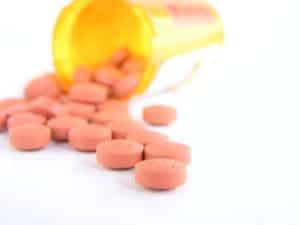Last Updated on December 31, 2023 by The Health Master
Self-Regulatory Body for Pharmaceutical Industry
Self-Regulatory Body: Amid mounting global scrutiny surrounding the quality of India-made medicines, Union Health Minister Mansukh Mandaviya announced that plans were underway to establish a self-regulatory body for the pharmaceutical industry.
Mandaviya emphasized India’s zero-tolerance policy for compromising quality and revealed the formation of a joint squad of regulators from the state and central authorities to conduct plant inspections.
While specific details about the composition and structure of the self-regulatory body were not disclosed, the minister expressed the government’s commitment to being industry-friendly while ensuring robust quality standards.
Inspections and Regulatory Measures:
Speaking at the eighth Quality Forum organized by the Indian Pharmaceutical Alliance, Minister Mandaviya disclosed that inspections had already been conducted at 150 plants.
As a result of these inspections, over 70 plants received show-cause notices, and 18 were issued closure notices.
Additionally, regulatory authorities have initiated risk-based audits of pharmaceutical plants.
Mandaviya further emphasized that companies with a history of product failures were being closely audited, and the regional industry was encouraged to provide support in improving quality standards.
However, the minister warned that companies exhibiting a careless attitude toward quality would not be allowed to continue operations.
Addressing Complaints and Ensuring Quality:
Addressing concerns raised by regulatory authorities, Mandaviya mentioned that India had conducted tests on samples of cough syrups alleged to be contaminated.
He highlighted the importance of root-cause analysis and stated that while one child had experienced diarrhea, not all 23 tested samples were found to be contaminated.
This finding puzzled the minister, as in cases of batch failure, all samples from that specific batch should fail the test.
Mandaviya expressed a commitment to investigate and rectify any quality-related issues to ensure the safety of pharmaceutical products.
India’s Global Supply of Medicines:
Minister Mandaviya acknowledged a notable shift in how countries and continents are now prioritizing the security of their medicine supplies following the Covid-19 pandemic.
He highlighted that India had supplied pharmaceutical products to 150 countries and vaccines to around 100 countries during the pandemic, with no complaints regarding substandard quality.
Mandaviya emphasized the current demand for Indian pharmaceutical companies to establish manufacturing capacities in various countries, urging them not to miss this opportunity.
He noted that while India may focus on exports, other countries could take advantage of the situation by establishing local manufacturing plants.
Furthermore, international organizations were now allocating funds to support the proliferation of manufacturing footprints.
Boosting Local Manufacturing:
To promote local manufacturing in the pharmaceutical sector, Minister Mandaviya proposed exploring innovative models of partnership between the industry and the government.
One suggestion involved the central government acquiring a stake in a special purpose vehicle for a pharmaceutical park, where both the industry and the state government would also hold stakes.
Mandaviya presented an example where the government invests Rs 1,000 crore in constructing plug-and-play infrastructure for the park.
After four to five years, once the park is operational, the government could sell its equity and reinvest the funds in other projects, facilitating continued growth and development.
Conclusion:
Union Health Minister Mansukh Mandaviya’s announcement regarding the establishment of a self-regulatory body for India’s pharmaceutical industry reflects the government’s commitment to maintaining stringent quality standards.
With the formation of a joint squad of regulators and ongoing inspections, the government aims to address any shortcomings promptly.
Minister Mandaviya also emphasized the need for Indian pharmaceutical companies to seize the opportunity to expand their manufacturing capacities globally.
Disclaimer: This article contains information derived from the source mentioned below. Our team utilized an AI language model to rewrite and present the news or article in a unique format.
Advantages and Integration of Pharma Sahi Daam App: Karnataka
Govt Job: For the post of Drugs Inspector under Public Service Commission
Zydus Lifesciences gets USFDA nod for generic acne-treating drug
German pharma major Bayer stops business in Pakistan: Report
Importance of Quality and Regulations in the Pharma Industry
Upcoming events: Pharma, Cosmetics, Homoeopathy & Medical Devices
PCI: Pharmacy is an independent profession, not paramedical course
209 Pharma companies under Govt lens over violations
CDSCO Committee to probe ‘faulty’ optical lens supplied by Swiss-American firm










